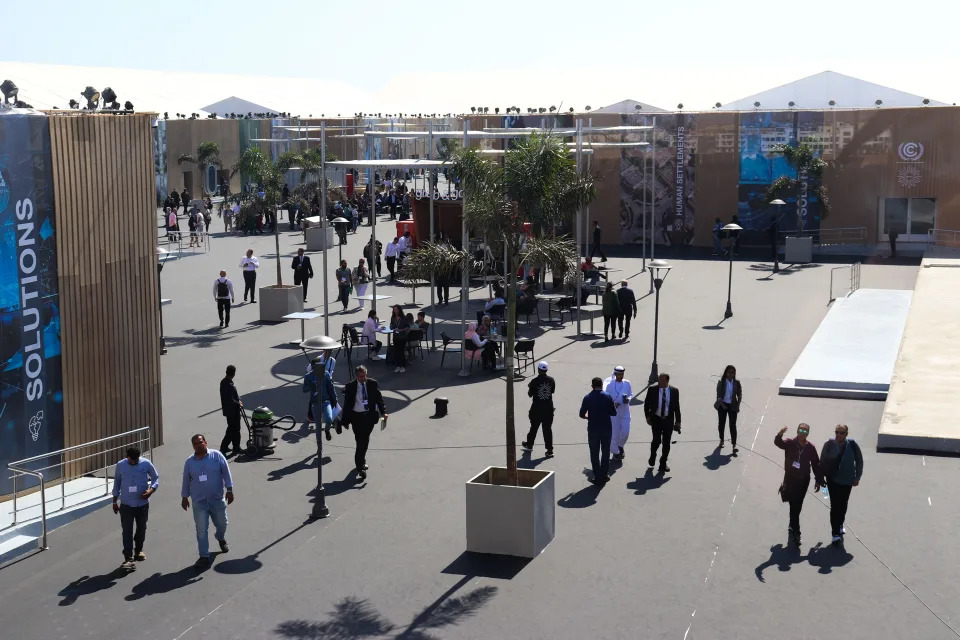Several climate NGOs today described the start of COP27 as “poor”, since compensation and financing for adaptation to climate change in the most vulnerable countries, especially in Africa, have been ignored on the official agenda by the nations contaminants.
The Climate Action Network, Greenpeace and Power Shift Africa denounced in a press conference that despite the fact that the issue of loss and damage related to global warming was included in the COP27 agenda, a mechanism has not been established to its financing.
“Unfortunately, the only way I can sum up how COP27 is going is with two words: poor start,” said Power Shift Africa director Mohamed Adow.
The Kenyan denounced that despite the fact that this COP is being held in Africa, whose countries are among those that suffer the most from climate change, this summit has not given the opportunity to “mobilize the financing that vulnerable countries need to be able to tackle damages and losses.
Likewise, he accused the main world economies, especially the European ones, of “harassing vulnerable countries to accept a two-year window to negotiate” an agreement that would not include “compensation and accountability of polluting countries historical”.
“We cannot allow COP27 to become a farce. We cannot let it happen,” said Adow, who also recalled that with the war in Ukraine, the countries that at the Glasgow summit last year committed to ending the financing of hydrocarbons, now “they want to turn Africa into Europe’s gas station”.
For her part, the executive director of the Climate Action Network International, Tasneem Essop, urged rich countries to reduce emissions “faster” than developing countries, and that reducing the rise in temperatures to 1.5 degrees is being affected by “lack of commitment, implementation and funding”.
Along the same lines, the director of Greenpeace MENA campaigns, Ahmad El Droubi, recalled that the financing commitment of 100,000 million dollars to help poor countries mitigate the problems caused by climate change “has not been fulfilled” , even though it was approved in 2009.
Likewise, he questioned the “quality” of said financing, since he estimated that 17% will be in the form of loans, something that “will put the economies of the global south in debt.”

